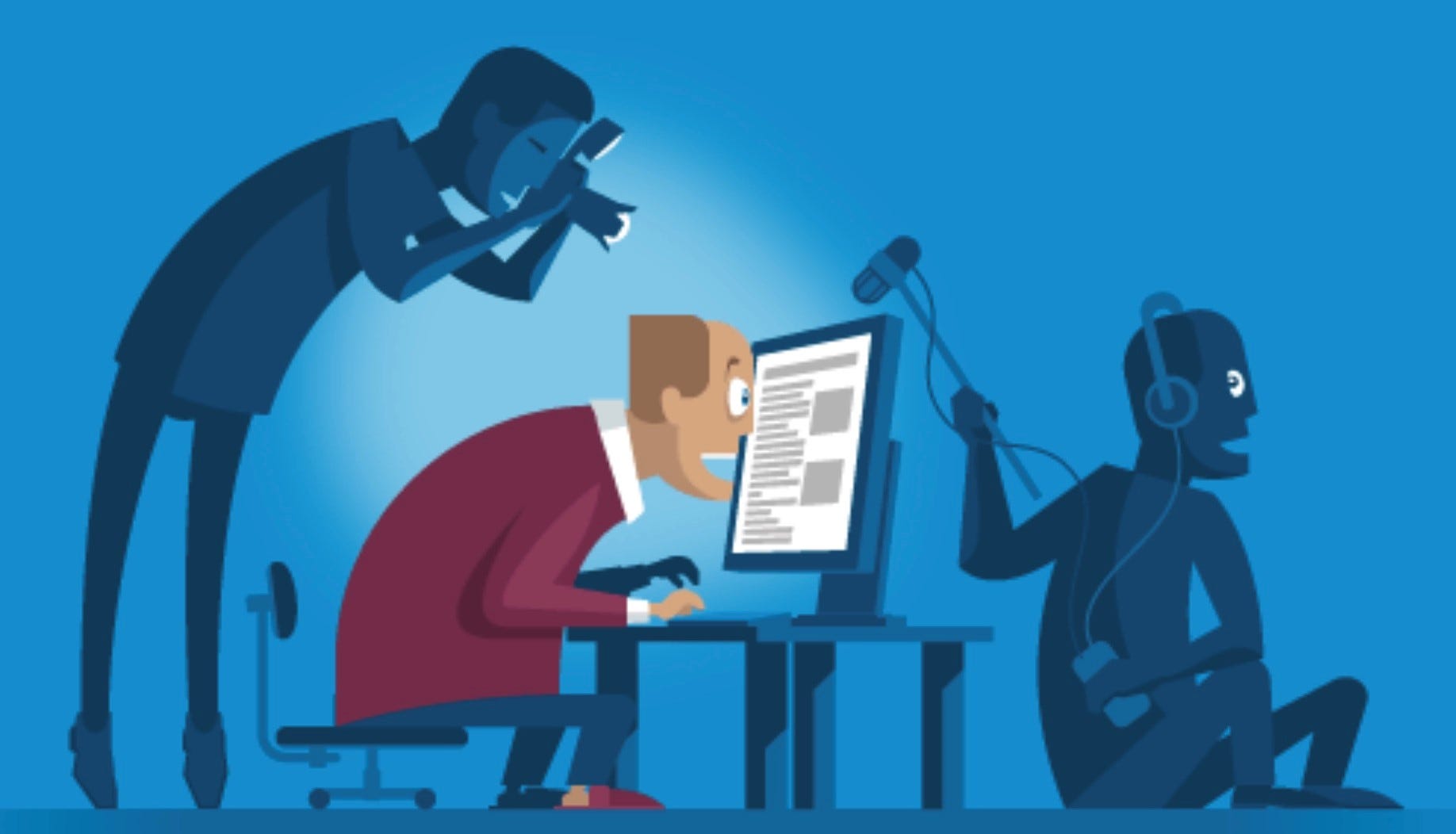
The breakneck speed of the digital age continues to present a handful of issues not previously imagined. Each year seems to bring about an advancement which will transform the way people live for Although there is plenty to be excited about in this new age of possibilities, online privacy is as an issue which lingers in the shadows for all internet users. The inherent nature of our devices makes them susceptible to profile-building and information selling. Several TED Talks further discussed these scary issues lurking under the surface of the web
A common theme across these TED Talks presented is the lack of awareness of the internet's lasting impact. As the popular saying goes, "there is no delete button on the internet." Despite this cultural cautionary statement associated with being online, surprisingly few people seem to grasp this reality. Juan Enriquez's comparison to a digital trail being a tattoo makes a tremendous amount of sense. Third-party agents can construct a profile about an individual based off their web activity. When google knows your search history and amazon knows what kind of products you like to browse, it becomes easy to predict an individual's browsing. Another example comes from Darieth Chisholm's discussion on revenge porn. She had no idea she was being exposed by her ex until people informed her and even then it took several painful months to remove the explicit content. Plus, even when the content is "deleted" all someone needs is a screenshot or some other proof of content to show it existed at one point in time.

Another repeated message that emerged from these talks came from the uncertainty behind the purpose of mass surveillance. Much like the lack of awareness of the internet's longevity, people appear to severely underestimate the widespread scale of surveillance technology. Catherine Crump alluded to the fact that police on the local level have recently begun to use NSA-level technology for the purpose of building an overall database. Similarly, Chris Sohhoian mentioned that former PM David Cameron wanted all surveillance findings to be used for government purposes. What is most concerning about these two examples is that the purpose behind these mega-databases is alarmingly unclear. What happens with all the data? Is it really just meant for all knowledge? Why do these government groups need so many data points? Despite these reasonable questions, no one wants to provide an answer. As more grievances pile on big tech, it will be interesting to see what changes are made in the near future.
Even though much of these TED talks discussed the frightening aspects of invasion of internet privacy, each of them mentioned a way in which people can fight back. Juan Enriquez called upon lessons from ancient mythology about keeping the purpose of the internet in mind, which in his perspective is a surface-level way to interact with others. By keeping the internet at an arms-length, it can't consume someone. To Catherine Crump, people need to take action into their own hands and thwart police and other authorities from using their data without proper cause. If the data is needed to stop criminals, then why should ordinary citizens be spied on regularly? In a surprising statement, Chris Soghoian advocated for the use of technology like iMessage and Whatsapp in order to hold secure conversations. The encryption of these softwares is so complex that Apple admitted to not being able to necessarily decipher what was being sent between users. Lastly, Darieth Chisholm used some reverse psychology to show how even if someone's personal image receives tremendous harm at the hands of the internet that there is light at the end of the tunnel. By finding everyday courage to persist, one can rise above the seemingly overwhelming nature of this technological advancement which connects all of us today.
Sources:
https://www.ted.com/talks/juan_enriquez_your_online_life_permanent_as_a_tattoo
https://www.ted.com/talks/catherine_crump_the_small_and_surprisingly_dangerous_detail_the_police_track_about_you#t-233135
https://www.ted.com/talks/christopher_soghoian_how_to_avoid_surveillance_with_the_phone_in_your_pocket
https://www.ted.com/talks/darieth_chisolm_how_revenge_porn_turns_lives_upside_down#t-452251
3. People have more power to stop this than they think

No comments:
Post a Comment